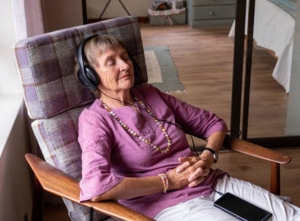Test Owner
The national charity Cerebra has released a detailed guide to self-injury in children with learning disabilities, aiming to support parents and carers in understanding and addressing these behaviours. Self-injury involves actions initiated by the child that may cause physical harm, such as head banging, biting, or scratching. This guide focuses on children with moderate to profound learning disabilities, autism, or genetic syndromes, as these groups are more prone to self-injury and related repetitive or impulsive behaviours.
The guide, authored by experts including Cerebra Network Director Professor Caroline Richards, provides an evidence-based approach to assessing and reducing self-injurious behaviour (SIB). Richards highlighted the prevalence of SIB in children with intellectual disabilities and the challenges it poses for families and clinicians. The guide is divided into five sections, covering what self-injury is, why it occurs, and steps parents can take to address it, with practical tips and real-life examples.
A key tool in the guide is the PEACE framework (Peace, Environment, Anxiety, Control, Exhaustion), which helps parents identify the potential causes of self-injury before implementing interventions. Suggestions include replacing self-injury with positive behaviours, reinforcing alternative actions, and reducing stress triggers. The guide also stresses the importance of recording the frequency of self-injury to monitor progress and ensure the child’s safety.
Parents and carers are encouraged to seek professional help if self-injurious behaviour persists despite interventions. Resources like the Cerebra Be Well Checklist and ABC charts can assist families in documenting patterns and presenting evidence to healthcare providers. The guide reinforces the critical role of parents as experts in their child’s behaviour, offering structured strategies to improve well-being and reduce harm.
Disabled people face significant barriers to accessing quality employment, contributing to rising numbers of work-related disability benefit claimants, according to a new report by the Joseph Rowntree Trust. The report, Unlocking Benefits: Tackling Barriers for Disabled People, calls for urgent reforms to enable disabled individuals to secure work and achieve financial stability, while also addressing economic growth objectives.
The report highlights that government policies must go beyond managing caseloads and benefit expenditure, instead tackling root causes such as health issues and structural barriers. Disabled individuals receiving health-related Universal Credit (UC) or Employment and Support Allowance (ESA) often endure severe hardship. Recent research reveals that a quarter of health-related UC claimants relied on food banks last year, while a third could not afford to heat their homes. Comparatively, these figures are significantly lower among the general working-age population.
Key recommendations include improving benefit adequacy and better supporting disabled people into suitable employment. This entails addressing worsening population health, enhancing the adaptability of jobs, and shifting employer attitudes towards disability. The report stresses that fears around losing benefits, confusion over rules, and mistrust of the Department for Work and Pensions (DWP) remain major barriers to work for many disabled people.
To foster change, the report urges reforms such as scrapping punitive benefit sanctions, increasing UC work allowances, introducing an Essentials Guarantee, and separating employment support from benefit administration. By taking a fresh approach, the government can promote trust, address inequality, and support disabled people into fulfilling employment.
New data reveals that over 200,000 people in England are currently waiting for an autism assessment, marking a 25% rise in the last year and a staggering 96% increase over two years. Of these, 89.4%—around 183,200 individuals—have been waiting longer than the 13-week target set by the National Institute for Health and Care Excellence (NICE). At the current rate, the waiting list could grow to over 256,000 by this time next year, with the median waiting time already standing at 301 days.
The National Autistic Society warns that lengthy delays in accessing assessments are leaving many individuals without the crucial support they need. An autism diagnosis often serves as a gateway to appropriate help and services, yet prolonged waits are causing undue stress and anxiety, and in some cases, pushing individuals towards a mental health crisis. The organisation stresses that support should not depend solely on a formal diagnosis, but the reality is often very different.
This growing backlog highlights a system under strain. Tim Nicholls, from the National Autistic Society, described the situation as a wake-up call, urging the government to act urgently. He pointed out that a small portion of the recently allocated £22.6bn NHS budget could resolve this crisis, easing pressure on families and services alike.
Without significant investment, waiting lists are set to grow further, leaving autistic people and their families without essential support. Campaigners are calling for immediate funding to address these delays and improve the future for those affected.
A long-term study to monitor and analyse the health of individuals with Down syndrome from birth to adulthood has been launched by the US National Institutes of Health (NIH). The Down Syndrome Cohort Development Program (DS-CDP), part of the NIH’s INCLUDE Project, aims to recruit thousands of participants, including those from historically underrepresented groups in Down syndrome research.
The study will collect biological samples, health data, and other information from participants, ensuring anonymity while making the data accessible to researchers. Recruitment is set to begin in late 2025, with plans to expand to new sites over the next five to ten years. The programme’s goal is to provide a comprehensive resource for understanding the health challenges faced by individuals with Down syndrome and to drive advancements in treatment and care.
Given that individuals with Down syndrome are at greater risk of developing conditions also prevalent in the wider population, such as Alzheimer’s disease, the study is expected to benefit not only those with Down syndrome but also broader medical research. The initiative represents a significant opportunity to improve quality of life and outcomes for affected individuals and their families.
Described as the largest investment in the seven-year history of the INCLUDE Project, this programme underscores the importance of collaboration between NIH institutes, academic centres, medical institutions, and community partners. It also seeks to enhance participation and diversity in clinical research to ensure more inclusive and impactful findings.
The government is reviewing whether disabled people in England should be allowed to claim more than the current £30,000 cap under the Disabled Facilities Grant (DFG). The grant, which helps fund essential home adaptations like wet rooms and stairlifts, has not seen an increase in its upper limit since 2008. This review follows a legal challenge brought on behalf of a six-year-old boy with autism and additional needs, whose family requires £100,000 to extend their one-bedroom home in Tower Hamlets, far exceeding the existing cap.
The review, expected to be completed by spring, will assess the impact on disabled individuals unable to afford vital adaptations due to the £30,000 limit. In 2018, a previous report recommended the cap be raised in line with inflation, highlighting that the current amount often falls short of the actual costs. While some councils provide additional funds, the amounts vary significantly by area, leaving many families struggling to meet their needs.
The boy’s mother described their living situation as inadequate for her son’s specific requirements, urging that the review bring meaningful change for families like hers. Disability charities, including Leonard Cheshire, have echoed calls to raise the cap, emphasising the grant’s importance in ensuring disabled people can live with dignity and independence.
The Department of Health and Social Care reaffirmed its commitment to supporting disabled people, pointing to an £86 million increase in DFG funding next year, which aims to fund nearly 8,000 additional home adaptations. However, it remains uncertain whether the review will lead to a formal increase in the grant’s upper limit.
A recent survey has revealed that 81% of councils are projected to overspend their adult social care budgets by March 2025, marking the highest level of overspending on record. The trend has worsened over the past three years, rising from 63% in 2022/23 to 72% in 2023/24. Conducted by the Association of Directors of Adult Social Services (Adass), the survey captures responses from 131 councils in England with social care responsibilities but does not account for the financial pressures of the Autumn Budget.
Increases in the National Living Wage and National Insurance contributions, announced in the Budget, are expected to exacerbate financial challenges for councils and care providers. Care England, representing adult care providers, has warned that these cost hikes could lead to care home closures, prompting calls for social care exemptions from National Insurance increases. Mencap’s Executive Director, Jackie O’Sullivan, criticised the £600 million sector funding as insufficient, with estimates suggesting double that amount is needed to meet rising costs.
The survey also highlighted a growing need for in-year savings, with 35% of councils required to make cuts, compared to 19% last year. Planned savings for 2025/26 have surged to £1.4 billion, raising concerns about the ability to invest in workforce, prevention, and unpaid carers. Adass President Melanie Williams described the sector as being at "breaking point."
The financial strain is particularly worrying for vulnerable people reliant on social care. O’Sullivan stressed that without urgent action, care workers, already struggling on low wages, will bear the brunt, with people with learning disabilities feeling the greatest impact. Adass and care charities are urging the government to collaborate on sustainable funding solutions to address the worsening crisis.
New research published in BJPsych Open has revealed substantial inconsistencies in service provision for people with epilepsy and learning disabilities across England. A study examining nine Integrated Care Systems (ICSs) in the Midlands found that many areas struggle to accurately identify the population with these needs, making effective service planning difficult. The report also highlighted challenges in recruiting and retaining staff with the specialised skills necessary to support these individuals.
One in five people with a learning disability also have epilepsy, a condition associated with a significantly higher risk of mortality. However, past studies have shown that these individuals often face fragmented care and poor risk management. The Step Together project was developed to address these gaps, providing a structured toolkit for assessing and enhancing care quality.
In this study, ICSs in the Midlands were invited to assess their services using the toolkit, which scores performance across areas like workforce, care planning, and information sharing. Results showed a regional average score of 44.2%, indicating room for improvement, with some systems scoring as low as 23.8%. Planning and care transition scored particularly low, reflecting challenges in supporting seamless care transitions from childhood to adulthood.
The authors note that the toolkit serves as a valuable catalyst for change by helping healthcare teams quickly identify areas for improvement and foster collaborative efforts across departments. While implementing such tools can be challenging in an already stretched healthcare system, the report underscores the urgent need for consistent, person-centred care to reduce avoidable hospital admissions and improve quality of life for those with epilepsy and learning disabilities.
A reimagined version of Cinderella, specially designed for audiences with profound and multiple learning disabilities, is set to open in London. Titled Sensory Cinders, the show will run from 2 to 5 November at Soho Place, marking a groundbreaking first for the West End, according to its creators, the Hull-based charity Concrete Youth.
This unique adaptation is described as a “significant step” toward fostering inclusivity. Featuring a blend of sensory-focused materials, an original musical score, and reworked characters and plotlines, Sensory Cinders offers a fresh take on the classic story with a strong emphasis on identity, self-expression, and magic.
Concrete Youth’s chief executive, Daniel Swift, highlighted the lack of tailored cultural experiences for people with profound and multiple learning disabilities, calling this production “a historic moment” in addressing this gap and advancing inclusivity within West End theatre and beyond.
Directed by Belle Streeton, Sensory Cinders has been developed in collaboration with The Civic, Barnsley, and Henshaws Arts & Crafts Centre in Knaresborough, with support from Sheffield Theatres and Arts Council England. Streeton expressed excitement for audiences to experience the passion and dedication poured into this show, which aims to create a memorable experience for all.
Researchers at the University of Roehampton have developed "Take Note," a new musical resource to support people with dementia. Take Note includes a website and a set of 100 activity cards designed to help carers engage older adults with music-based activities. Created by Dr Fi Costa and Professor Adam Ockelford, these resources are grounded in over 50 studies exploring the connection between music and dementia, highlighting music’s ability to spark memories, revive skills, and encourage social interaction.
The resources aim to make music an accessible tool for carers, requiring minimal preparation and allowing meaningful interaction without extensive training. Music has been shown to reduce distress, support emotional expression, and enhance social bonds for those with dementia. By providing practical ideas, Take Note seeks to empower carers to incorporate music effectively in daily routines and group settings.
Since 2022, the Cinnamon Care Collection has piloted the Take Note resources in five of its care homes across London, Hampshire, and East Sussex, including Eden Court and Rectory Court, where positive outcomes have been observed. The Take Note website includes over 50 instructional videos demonstrating how each activity can be used to foster engagement and well-being.
Professor Ockelford shared that, after years of work in care homes, the project team identified a clear need for resources that guide carers on how to deliver impactful music interventions. Take Note was officially launched on 22 October 2024, at the University of Roehampton's "Take Note Conference," marking a milestone in dementia care research.
Four major autism charities are urging the government to address a critical crisis affecting thousands of people awaiting autism diagnoses and facing inadequate care. This call follows a recent report by the Care Quality Commission (CQC), highlighting significant failures in health and social care for people with learning disabilities and autism. The charities have written to government officials, asking for increased funding to stabilise and strengthen the struggling care system.
The CQC report revealed worrying health inequalities, including lower life expectancy and preventable deaths among people with learning disabilities and autism. Many face delayed diagnoses and missed opportunities for early intervention, with waits extending far beyond recommended times. Additionally, only a small proportion of people with learning disabilities are recorded on relevant health registers, meaning many miss out on necessary proactive care.
Another pressing concern is the use of restrictive practices, with reports of excessive restraint and other restrictive measures due to limited staff training and awareness. Some care providers lack the appropriate skills to support people who may be distressed, leading to harmful and sometimes illegal practices. Closed cultures in care settings also contribute to unchallenged, restrictive methods, with staff often unaware of the consequences of their actions.
Finally, there’s a call for better staff training and adherence to the forthcoming Oliver McGowan Code of Practice, which outlines mandatory requirements for supporting individuals with learning disabilities and autism. Ensuring that staff are adequately trained is essential to improving the quality of life and outcomes for those in care.












